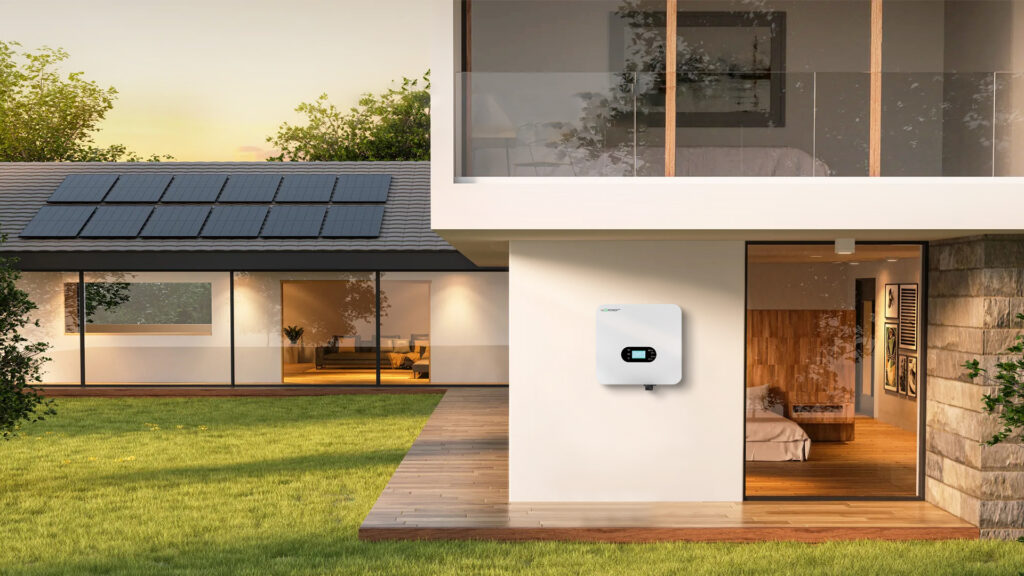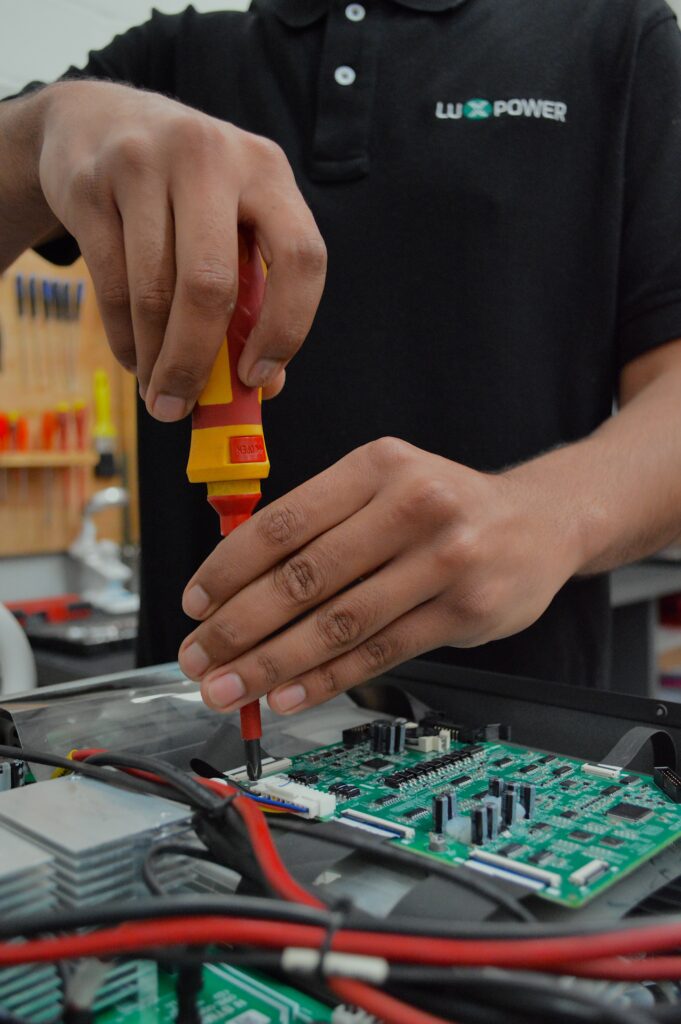How the Right Inverter Can Reduce Your Energy Bills
Hey there, savvy energy savers! If you’re exploring ways to cut down on your energy bills, let’s talk about the unsung hero of solar systems: the inverter. You might be surprised to learn how the right inverter can significantly impact your energy savings. So, grab a cup of coffee and let’s dive into this topic!
Understanding Inverters and Their Role
First things first, what exactly is an inverter? Think of it as the brain of your solar system. It converts the direct current (DC) electricity generated by your solar panels into alternating current (AC) electricity, which powers your home. Without a good inverter, your solar energy is practically useless. Therefore, choosing the right inverter is essential for maximizing your energy savings.
Did you know that the efficiency of your inverter can affect how much energy you save? Modern inverters are designed to minimize energy loss during this conversion process. The more efficient your inverter, the more energy you can use from your solar panels. Investing in a high-quality inverter means you’re harnessing every ounce of sunlight to save on those pesky energy bills.
Maximizing Solar Output with Smart Inverters
Now, let’s chat about smart inverters. These innovative devices come packed with advanced features that help you get the most out of your solar setup. Smart inverters can communicate with your solar panels and optimize energy production in real-time. They adjust the output based on factors like weather conditions and energy demand, ensuring you’re always using the most solar energy possible.
Imagine this: on a cloudy day, a regular inverter might not adjust to the reduced sunlight effectively, causing energy loss. But a smart inverter? It’ll fine-tune its settings to maximize output even in less-than-ideal conditions. This adaptability translates to higher energy savings throughout the year, making smart inverters a fantastic investment for anyone serious about cutting their energy bills.
Sizing Matters: Finding the Right Fit
When it comes to inverters, sizing is crucial. An inverter that is too small for your solar system won’t be able to handle the energy generated, leading to wasted potential and higher energy bills. On the flip side, an oversized inverter can lead to inefficiencies and additional costs. That’s why choosing the right size is essential for maximizing energy savings.
To find the perfect fit, consult with a solar energy professional who can assess your specific energy needs. They’ll help you determine the best inverter size for your solar setup. Getting this right ensures you’re not leaving any energy on the table. After all, the goal is to harness as much solar power as possible to reduce those monthly bills.
Regular Maintenance for Ongoing Savings
Like any other piece of technology, inverters require regular maintenance to perform at their best. Keeping your inverter in top shape can enhance its efficiency and prolong its lifespan. A well-maintained inverter operates more efficiently, translating to ongoing energy savings for your home.
What does this maintenance look like? Simple tasks like cleaning the inverter and checking for error messages can make a big difference. Many modern inverters come with monitoring apps, so you can keep track of their performance from your smartphone. If you notice any issues, don’t hesitate to reach out to a professional for assistance. Regular maintenance ensures your inverter runs smoothly and keeps those energy bills low.
Importance of Inverter Sizing and Compatibility

Understanding Inverter Sizing
First things first, what does inverter sizing mean? In simple terms, it refers to selecting an inverter that matches the power output of your solar panels. If your inverter is too small, it won’t be able to handle all the energy your panels produce. This can lead to energy losses and, ultimately, higher bills. On the other hand, an oversized inverter can be just as problematic. It may not operate efficiently, resulting in wasted energy and unnecessary expenses.
To get it right, you need to consider the total wattage of your solar panels. A good rule of thumb is to choose an inverter rated for about 80% of your panels’ capacity. This allows some headroom for optimal performance while avoiding overloading. For example, if your solar panels generate 5,000 watts, an inverter around 4,000 watts would be ideal. This sizing strategy ensures that you maximize your energy savings without sacrificing performance.
The Importance of Compatibility
Now that we understand sizing, let’s discuss compatibility. Not all inverters are created equal, and compatibility with your solar panels is key to an efficient system. It’s essential to choose an inverter that works well with your specific solar panel technology. For instance, if you have high-efficiency panels, pairing them with a compatible inverter is crucial for optimal performance.
Using mismatched components can lead to energy losses and reduced efficiency. Always check the inverter’s specifications to ensure it matches the voltage and current ratings of your solar panels. This compatibility ensures that your solar energy system operates smoothly and maximizes energy savings.
Impact on Energy Savings
So, how does proper sizing and compatibility impact your energy savings? When your inverter is the right size and compatible with your solar panels, you maximize the energy harvested from the sun. A well-sized inverter converts more sunlight into usable electricity, which means you can rely less on the grid.
Imagine this: a properly sized and compatible inverter can increase your system’s efficiency by 10-20%. This translates to significant savings on your energy bills over time. More solar energy used means less money spent on electricity, allowing you to invest in other exciting projects or enjoy some well-deserved treats!
Consulting the Experts
When it comes to sizing and compatibility, consulting with solar energy professionals can make all the difference. They can assess your energy needs and recommend the best inverter for your system. Plus, they’ll help you navigate the technical jargon, ensuring you choose components that work harmoniously together.
A professional can also help you understand any additional factors to consider, such as local regulations or incentives. Their expertise ensures that you make informed decisions that benefit your energy savings in the long run.
Regular Monitoring and Adjustments
Even after you’ve chosen the right inverter, ongoing monitoring is crucial. Keeping an eye on your solar system’s performance can help you spot any issues early on. Luxpower’s advanced monitoring tools allow you to track energy production and identify potential compatibility problems. If you notice a drop in energy output, it might be a sign that your inverter isn’t performing as expected.
Adjustments may be necessary over time as your energy needs change or as technology advances. Regular maintenance checks ensure that your inverter continues to operate efficiently and maintains optimal compatibility with your solar panels. By staying proactive, you’ll maximize energy savings and keep your solar system running smoothly.
Tips for Optimizing Inverter Performance

Regular Maintenance is Key
Just like your car needs regular oil changes, your inverter needs maintenance to run smoothly. Performing regular check-ups can help ensure that your inverter operates efficiently. Start by cleaning the inverter regularly to remove dust and dirt. A clean inverter can prevent overheating and enhance performance, ensuring that you’re making the most of your solar energy.
Don’t forget to inspect the wiring and connections as well. Loose or damaged connections can lead to energy losses. If you notice anything amiss, don’t hesitate to call in a professional for help. Regular maintenance not only keeps your inverter performing well but also extends its lifespan. Remember, a happy inverter means more energy savings for you!
Monitor Performance Consistently
Monitoring your inverter’s performance is crucial to optimizing energy savings. With advanced monitoring systems available today, you can easily track how much energy your solar panels are producing and how well your inverter is converting that energy. Many inverters come with apps that allow you to monitor performance right from your smartphone.
Keep an eye out for any unusual drops in energy production. If your inverter isn’t producing as much energy as expected, it might be time to investigate further. A sudden drop could indicate a problem with the inverter or other components of your solar system. By staying proactive and monitoring performance, you can identify and address issues quickly, ensuring maximum energy savings.
Choose the Right Location for Your Inverter
The location of your inverter can significantly impact its performance. Ideally, you want to place your inverter in a cool, shaded area that’s protected from extreme weather conditions. High temperatures can reduce efficiency, causing the inverter to work harder and consume more energy.
If your inverter is installed outdoors, consider investing in a protective enclosure. This will help shield it from direct sunlight, rain, and dust. Additionally, ensure that there is enough airflow around the inverter. Proper ventilation prevents overheating and maintains optimal performance. A well-placed inverter can lead to greater energy savings, so take the time to assess its location!
Keep an Eye on the Battery
If you’re using a solar battery with your inverter, it’s essential to monitor its performance too. The inverter and battery work together to ensure that you’re maximizing your energy savings. Make sure your battery is compatible with your inverter and that both systems are operating efficiently.
Regularly check the battery’s state of charge. Keeping your battery topped up will ensure that you can store excess energy for later use. This way, you won’t have to rely solely on grid power when the sun isn’t shining. An efficiently functioning battery and inverter duo can significantly improve your energy savings, giving you peace of mind.
Understand Your Energy Needs
Knowing your energy consumption patterns can also help optimize your inverter’s performance. Take some time to track your daily and monthly energy usage. This will give you insights into when your energy needs are highest and when you can maximize solar energy production.
For instance, if you use more energy during the day, consider adjusting your routines to align with solar energy production. Using energy-intensive appliances when the sun is shining will help you rely less on grid power. The more you align your energy use with solar production, the greater your energy savings will be!
Seek Professional Advice When Needed
Finally, don’t hesitate to seek professional advice if you’re unsure about optimizing your inverter’s performance. Solar energy experts can assess your system and provide tailored recommendations to help you get the most out of your investment. Whether it’s performing maintenance, upgrading components, or troubleshooting issues, their expertise can make a big difference in your energy savings.
Regular consultations with professionals can also keep you informed about the latest technology and industry trends. Staying updated on advancements in inverter technology can help you optimize your solar system even further.
Conclusion
In conclusion, choosing the right inverter and optimizing its performance are vital steps toward maximizing your energy savings with solar power. By understanding the role of your inverter, ensuring proper sizing and compatibility, and implementing regular maintenance, you can significantly enhance the efficiency of your solar system. Smart inverters, strategic placement, and continuous monitoring all contribute to capturing the full potential of the sun’s energy.
Don’t forget to consider the interplay between your inverter and battery if you have one. Keeping both systems in sync is essential for storing and utilizing energy effectively. With a proactive approach, you can ensure that your solar energy system operates at peak performance, translating to lower electricity bills and a greener footprint.
So, whether you’re a new solar user or a seasoned pro, remember that investing time and effort into optimizing your inverter can lead to substantial long-term savings. Embrace the power of solar energy and enjoy the benefits of a more sustainable, cost-effective energy solution!

